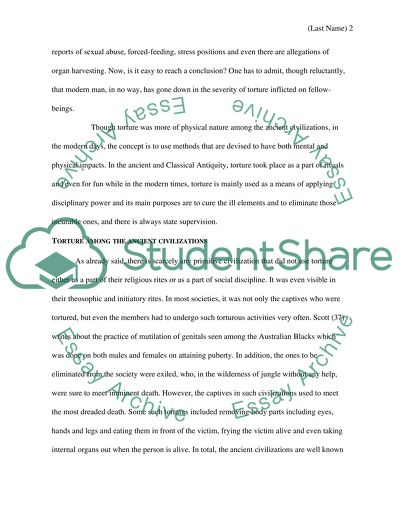Cite this document
(“What constitute torture Research Paper Example | Topics and Well Written Essays - 1250 words”, n.d.)
Retrieved from https://studentshare.org/sociology/1406624-what-constitute-torture
Retrieved from https://studentshare.org/sociology/1406624-what-constitute-torture
(What Constitute Torture Research Paper Example | Topics and Well Written Essays - 1250 Words)
https://studentshare.org/sociology/1406624-what-constitute-torture.
https://studentshare.org/sociology/1406624-what-constitute-torture.
“What Constitute Torture Research Paper Example | Topics and Well Written Essays - 1250 Words”, n.d. https://studentshare.org/sociology/1406624-what-constitute-torture.


